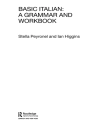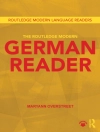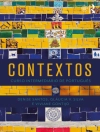This accessibly written book is ideal for use in graduate courses or by practicing researchers and evaluators. The author puts the research problem at center stage, showing how mixed methods designs can fruitfully address different types of research questions. She illustrates the discussion with examples of mixed methods studies from a variety of disciplines and qualitative approaches (interpretative, feminist, and postmodern). The text demonstrates how to navigate ethical issues; gather, analyze, and interpret data; and write up the results, including an in-depth example with step-by-step commentary. Special features include “researcher standpoint” reflections from leading scholars and practical strategies to help users develop their own research perspectives. Every chapter concludes with a glossary, discussion questions, and useful Web resources.
Tabla de materias
1. Introduction to Mixed Methods Research
2. Formulating Questions, Conducting a Literature Review, Sampling Design, and the Centrality of Ethics in Mixed Methods Research
3. A Qualitative Approach to Mixed Methods Design, Analysis, Interpretation, Write Up, and Validity
4. Interpretative Approaches to Mixed Methods Research
5. Feminist Approaches to Mixed Methods Research
6. Postmodernist Approaches to Mixed Methods Research, with Chris Kelly
7. Putting It Together: Qualitative Approaches to Mixed Methods Research Praxis
8. Conclusion: The Prospects and Challenges of Mixed Methods Praxis
Sobre el autor
Sharlene Nagy Hesse-Biber is Professor of Sociology and Director of Women’s Studies at Boston College. She is also the founder and former Executive Director of the National Association for Women in Catholic Higher Education. She has published widely on the impact of sociocultural factors on women’s body image, as well as on feminist and qualitative research methods. She is codeveloper of the software program Hyper RESEARCH, a computer-assisted program for analyzing qualitative data, and of the new transcription tool Hyper TRANSCRIBE. Her article ‘Qualitative Approaches to Mixed Methods Practice’ was the most downloaded article of 2010 in the journal
Qualitative Inquiry.












